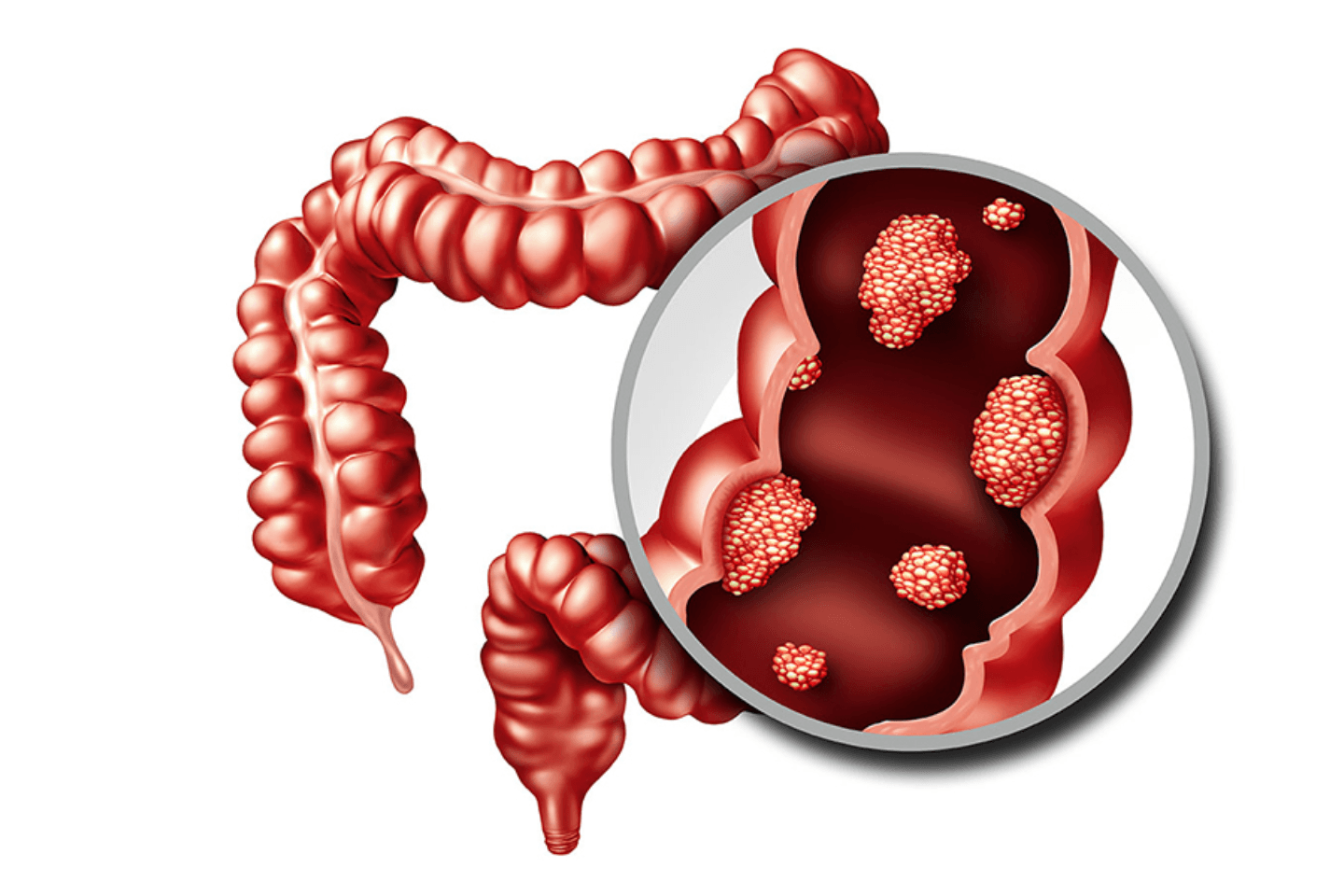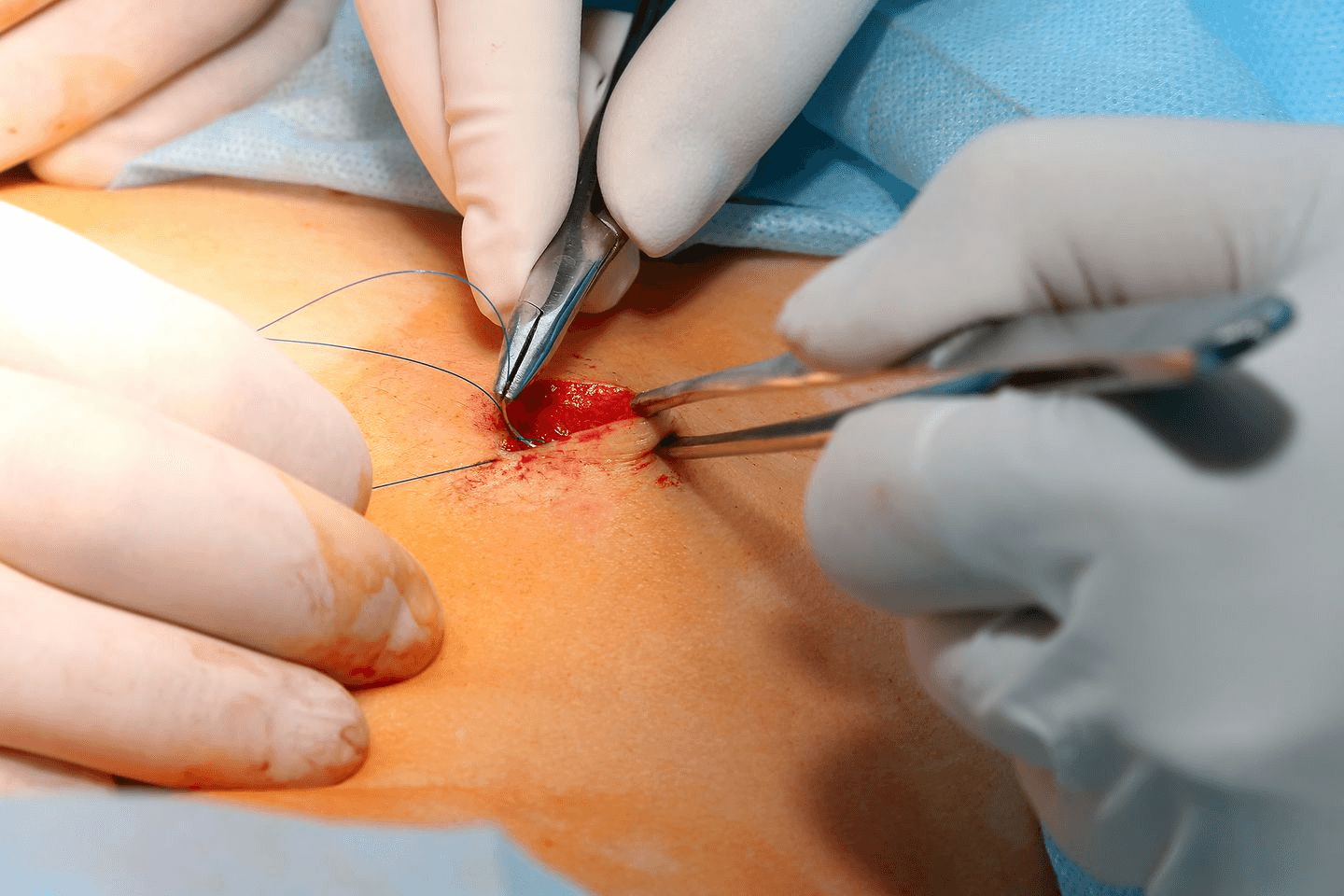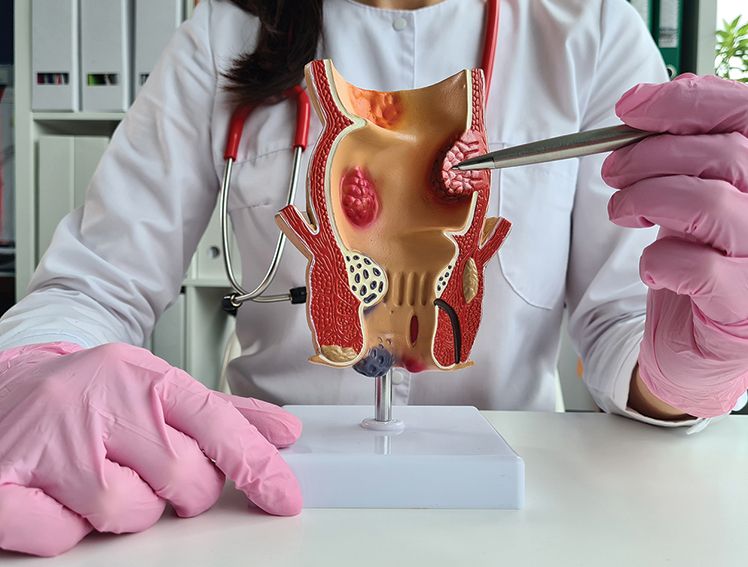
Rectal Cancer
Introduction
Cancer that affects the rectum is called rectal cancer. The rectum is the last 6 inches of your large intestine - it's the final section that stores stool before it passes through the anus during a bowel movement. If cancer also affects the colon, it is called colorectal cancer. Rectal cancer has five stages,
Stage 0 means abnormal cells are found only in the inner lining
Stage I-III means the cancer has grown deeper or spread to nearby lymph nodes,
Stage IV means it has spread to other parts of your body like liver or lungs
Let’s take a closer look at the symptoms of rectal cancer and explore treatment options.
Symptoms of rectal cancer
Rectal cancer symptoms often develop gradually, and many people have no symptoms in the early stages. The important warning signs to watch for include:
Rectal bleeding is the most common symptom, affecting approximately 60% of patients. You might notice bright red blood in your stool, on toilet paper, or in the toilet bowl.
Changes in bowel habits that last more than a few days - This might mean having diarrhoea, constipation, or feeling like your bowel doesn't empty completely.
Changes in stool appearance - Your stool might become narrower, or you might notice mucus mixed with blood.
Unexplained weight loss and fatigue - Losing weight without trying or feeling unusually tired can be a sign that your body is fighting something.
Abdominal discomfort - You might experience cramping, pain, or a feeling of fullness in your belly.
Important note: These symptoms can be caused by many other conditions, like haemorrhoids or infections, but a healthcare provider should evaluate any persistent changes.
Causes and Risk Factors
Factors you cannot control:
Age - While rectal cancer can occur at any age, most cases happen after age 50. However, there's been a concerning increase in younger adults developing this cancer.
Family history - Having a parent, sibling, or child with colorectal cancer increases your risk significantly. About 15-20% of cases occur in people with a family history.
Inherited genetic conditions - Conditions like Lynch syndrome and familial adenomatous polyposis dramatically increase risk, though they account for only 5-8% of all cases.
Factors you can influence:
Diet high in red and processed meats - Regular consumption of beef, pork, lamb, and processed meats, such as bacon and hot dogs, increases the risk.
Physical inactivity - A Sedentary lifestyle significantly raises your risk.
Obesity - Excess weight, especially around the waist, increases rectal cancer risk.
Heavy alcohol consumption - Regular heavy drinking increases risk.
Medical history factors:
Inflammatory bowel disease - Conditions such as ulcerative colitis and Crohn's disease increase the risk.
Previous colorectal cancer or polyps - A past history of these conditions increases the risk of new cancers.
Rectal cancer treatment
Rectal cancer treatment is highly individualised and depends on the cancer's stage, location, and your overall health.
Modern treatment approach follows a team-based strategy:
- For early-stage rectal cancer (Stages 0-I): Surgery alone may be sufficient, often using minimally invasive techniques that preserve normal bowel function.
For locally advanced cancer (Stages II-III): The standard approach typically includes preoperative radiochemotherapy followed by surgery and additional chemotherapy. This sequence, called neoadjuvant therapy, can shrink the tumour before surgery and may allow some patients to avoid permanent colostomy.
Treatment components explained:
Neoadjuvant therapy - Radiation combined with chemotherapy given before surgery to shrink the tumour and make it easier to remove completely.
Surgery (Total Mesorectal Excision) - The gold standard surgical technique that removes the rectum and surrounding tissue in one piece to prevent cancer spread.
Adjuvant chemotherapy - Additional chemotherapy after surgery to destroy any remaining cancer cells.
Advanced treatment options:
Monitor: For patients whose tumours completely disappear after radiation and chemotherapy, careful monitoring may be an option instead of immediate surgery.
Newer surgical techniques - Advanced methods that better preserve anal function and reduce complications.
Important: Treatment decisions are made by a multidisciplinary team including surgeons, oncologists, radiation specialists, and other healthcare providers working together to create the best plan for your specific situation.
Prevention and early detection
Screening saves lives: Regular colonoscopy screening starting at age 50 (or earlier if you have risk factors) can detect and remove precancerous polyps before they become cancer.
Lifestyle modifications that may reduce risk: Maintain a healthy diet - Eat plenty of fruits, vegetables, and fiber while limiting red and processed meats.
Stay physically active - Regular exercise significantly reduces colorectal cancer risk.
Maintain a healthy weight - Achieving and maintaining a healthy BMI is important for prevention.
Limit alcohol and avoid smoking - Both significantly increase risk.
Early detection outcomes:
When caught in early stages (Stage I), the 5-year survival rate exceeds 90%. Even locally advanced cases (Stage II-III) have good outcomes with modern treatment approaches.
Going through treatment for any form of cancer, including rectal cancer, can be physically and emotionally challenging. Many support groups offer a safe and understanding environment for patients undergoing treatment.
MIRUS Linear Stapler
A Meril manufactures a range of medical products for use during diagnostic and surgical procedures. The MIRUS linear stapler is one such state-of-the-art surgical tool that offers superior surgical outcomes due to its ability to accommodate different thicknesses of tissues. The ergonomic design, single-hand operation capacity, and diverse reload options are some of the features that make the MIRUS linear stapler a tool of actual utility for surgeons. Other noteworthy features of this device include a lock, parallel jaw closure, and a disposable loading unit with a secure grip.
The MIRUS linear stapler is available in 30mm, 45mm, 60mm, and 90mm sizes with two different staple cartridge sizes.



